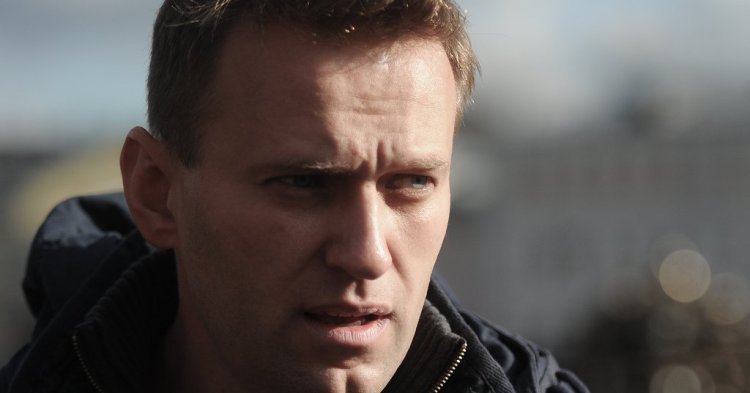One week ago on June 12th Russian citizens had a day off. What is this holiday called „Russia’s day“ about?
It is a national holiday that dates back to the declaration of sovereignty that Russia, or at that time the Russian Socialist Federation of Soviet Russia (RSFSR) signed on the 12th of June 1990. Alexei Navalny chose this day to promote his own agenda, his fight against corruption and his investigations about Russian high officials.
Navalny called the people to the streets. First the demonstration was set to start on Sakharov Avenue. But only twelve hours before the demonstration startet they changed the location to Tverskaya street. The street is right next to the Kremlin, so it would raise much more attention.
At the same time there was a festival where historical reenactments took place.
The official government newspaper wrote that many people actually came to see the reenactement show on Tverskaya rather than joining the protest against corruption.
Well, if the protest would have stayed in Sakharova it would have attracted far less people. That’s for sure.
Do you think people were coming to Tverskaya in order to join the protest or in order to celebrate the state holiday?
There were people coming for both the protest and the celebration. The people protesting were many but not the majority. They were loud and noisy and therefore could raise attention.
Apart from Moscow there were protests in over 140 cities across Russia. How do you explain that?
There were actions in other cities but they were less popular than in Moscow and Saint Petersburg. There was only a couple of hundred people in those cities. What Navalny achieved was to mobilise people nationwide. He has a very good network of his offices and his supporters all around the country. But it is not the majority who supports him.
The biggest protests where in Moscow, Saint Petersburg and Yekaterinburg. Thousands participated in each of these cities.
The last big protest was on 26 March 2017 after a documentary made by Navalny’s team revealed prime minister Medvedev’s secret property. Back then there were protests in around 100 cities, now it is more than 140 cities across the country. It seems the protest is growing.
Yes there is protests in more cities. But this is only due to the better organisation of the events. If there is formally a protest it doesn’t mean that the protest is very popular.
Let’s have a look at the people who actually joined the protest. Did you do a survey at Levada on who are the protesters?
We did not make any survey yet. But since I was there myself, observing the protest I could see that mainly young people in their mid-twenties took part. Many of them were supporters of Navalny. He is simply very good at getting his message across in the internet.
The Levada-Institute measured the popularity of Alexei Navalny. About 55 percent of the respondents answered that they know Navalny, out of which 10 percent said they can imagine supporting him, 2 percent are sure to support him.
There is people that are radically against the existing opposition party and that’s why they are supporting Alexei Navalny. Navalny is currently under investigation. It is difficult to support someone who is considered an outlaw. That’s why the number of his supporters is not that big. But they are very active. We can see that they organize very colourful actions.
Navalny’s image in the Russian TV is very negative. And many other opposition leaders don’t support him or support him only in some aspects.
There will be regional elections in September and presidential elections next year in march. Is there any real chance that Navalny will take part in the elections?
It’s hard to predict this. I don’t think Navalny himself believes that the government will allow him to run in the election. His main idea is to spread news about him, to attract people and broaden the network of his supporters. I think he has positive prospects in the far future but in the short run he will loose in the elections. He might succeed in being elected major of Moscow in the future.
You mentioned that Navalny is currently still under investigation. There was already a court trial against him and he got attacked and lost partly his eye sight. Do you think there is more repressions coming up?
It is always dangerous to be an opposition leader in Russia. But I don’t think he is under big threat. If the government had decided to put him into jail than they would have done it already. If they decided to kill him then he would be dead already.
At the moment he is trying to balance his relationship with the government. That’s why he has focussed on the prime minister (Medvedev), who is always a target for ridicule and laughter. He is not so much criticising Putin though.
In future he will try to find a way into the political elite and his own place in the system of power.
So Navalny does not really challenge the system?
It is always a challenge but at the same time I don’t think things will change profoundly.
Arthur Molt conducted the interview for treffpunkteuropa.de

Follow the comments: |
|
